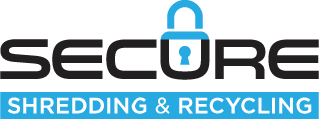How to Keep Your Tax Records Safe & Secure at Home

Tax season brings many different challenges with it. From compiling receipts to making the right calculations, there are several different tasks that have to be completed before you can relax and put taxes out of your mind for another year. However, even after your taxes have been sent off, you still need to consider how you’ll look after the copies of your taxes that you’re required to keep.
The required time for keeping tax returns varies according to the different circumstances of an individual or business, but the rules of good record storage are largely the same.
Storing Physical Copies?
If you’re storing physical copies of your tax returns – that is, paper documents – then proper security for you comes down to controlling access to them. Many individuals store their returns in a dedicated file folder or cabinet. What many fail to consider is that these access points also need to be protected by a locking mechanism.
The idea is that even if someone gains access to the room in which your returns are kept, they won’t be able to open the container that holds them. A drawer provides no protection for your information unless you can lock it with a key. You should also make sure that the room you’re keeping your records in is similarly secure. The difference between a safe tax return and a canvas for the youngest member of the family is a lock on the door of the room they’re kept in.
Storing Digital Copies?
You’re likely to have some paper copies of your taxes kicking around, but for the best security (and in case of emergency), you should also have some digital copies stored on e-media devices. You might also prefer the ease of searching through them and the enhanced portability they offer. And yet, as you’ve likely guessed, digital copies require security, too.
The first task on your list should be to encrypt your digital files. Encryption protects them from being opened by anyone without the correct password, so even if you lose your flash drive in a parking lot, the person who discovers it won’t be able to breeze through your records.
The second level of protection is, as with your paper documents, to restrict access to them. If you’re storing your returns on a household computer with WiFi access, it’s imperative that you password-protect your internet connection, even if you anticipate only other members of the household using it. Keep a backup of your tax records, but keep the backup in a separate, secondary location from the original files. This way, if a hacker gains access to your computer or a natural disaster wipes out your hard drive, you’ll still have a working copy to fall back on.
Discarding Unneeded Copies?
At some point, you’ll no longer need to keep specific records or receipts from previous years. In this instance, no matter whether they’re stored on paper or in a digital format, you’ll need to make sure that they’re securely destroyed.
It may be tempting to try and DIY your own security protocol, but think twice before you reach for the scissors. Unless your documents are processed by a professional shredding company, there’s a good chance that a thief with enough stubbornness and free time will be able to piece the information back together – and once they have access to your personally identifiable information (PII), they’ll be able to gain access to your personal and financial accounts.
Instead of putting yourself and your information at risk, outsource the task to a purge shredding service. You’ll only pay for the service you need, you won’t have to commit to any long-term contracts, and they’ll have both the equipment and the experience to properly discard your information. They can process papers and e-media, and they’ll immediately remove the shredded particles for recycling at a secure facility, eliminating any chance whatsoever that your information could be lost or stolen in transit.
Plus, at the conclusion of your purge shredding service, you’ll be provided with a Certificate of Destruction. If you ever need to prove where your records went or to what extent they were discarded, the Certificate will function as proof that you outsourced the task to a certified, professional document shredder.
Protect Your Information With Purge Shredding
At Secure Shredding & Recycling, our number one priority is to ensure the safety and security of your information. That’s why we’re AAA Certified by the National Association for Information Destruction, and that’s why every facet of our service – from the moment we collect your documents to the second we recycle the remnants – is designed to keep your information confidential.
We’ve also designed our services to be flexible enough to meet whatever your shredding needs are, from a regularly scheduled service for busy offices to a one-time purge shredding option for quick and thorough disposal of old documents. Our staff is ready to help you create the shredding plan you need for the safety of your private papers.
To learn more about purge shredding services from Secure Shredding & Recycling, give us a call at (225) 751-8535. You can also send us a message online.


